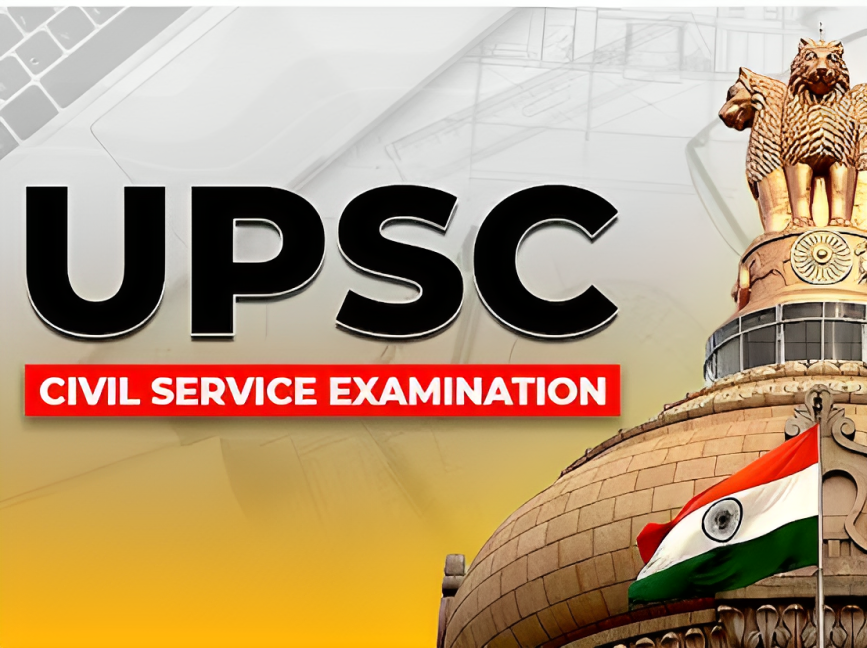Introduction:
The UPSC (Union Public Service Commission) exam is not just a test of knowledge; it is a rigorous evaluation of an individual’s ethical dimensions, shaping the future of civil service leaders in India. Ethics plays a pivotal role in this examination, influencing both the aspirants and the society they are preparing to serve.
The Essence of Ethics in UPSC:
Character Building: Ethics in the UPSC exam goes beyond academic competence. It is about shaping the character of future administrators. The exam seeks individuals with integrity, honesty, and a strong moral compass.
Public Service Values: UPSC aspirants are expected to internalize the values of public service. Ethical considerations are at the core of decision-making in the civil services, impacting policies and programs for the welfare of society.
Leadership with Integrity: The civil service demands leaders who can navigate complex challenges with integrity. Ethics in the UPSC exam is a reflection of an aspirant’s ability to uphold principles in the face of adversity.
Incorporating Ethics in the UPSC Syllabus:
GS Paper IV – Ethics, Integrity, and Aptitude: The dedicated ethics paper in the UPSC mains exam underscores the importance given to ethical dimensions. Aspirants are evaluated on their understanding of ethical principles, case studies, and application of values in governance.
Ethics in Essay Writing: The essay paper provides an opportunity for aspirants to express their ethical perspectives. Topics often revolve around socio-economic issues, ensuring candidates reflect on the ethical dimensions of policies.
The Role of Ethics in the Interview Process:
Personality Test: The UPSC interview isn’t just a test of knowledge; it is a test of the candidate’s personality and ethical grounding. Aspirants are expected to articulate their ethical standpoints on contemporary issues.
Real-life Situational Ethics: The interview panel often presents candidates with real-life scenarios, assessing their ability to make ethical decisions under pressure. This process helps in identifying individuals capable of ethical leadership.
Ethics as a Catalyst for Social Change:
Policy Formulation: UPSC aspirants, through their rigorous preparation and training, acquire a strong foundation in ethical considerations. This ethical grounding is crucial when these aspirants eventually become policy-makers. In the realm of policy formulation, ethical principles play a pivotal role in shaping decisions that have far-reaching consequences for society. As future leaders, the ethical perspectives imbibed during their UPSC journey guide these individuals to create policies that prioritize the welfare of diverse sections of society.
For instance, when addressing issues such as poverty, education, or healthcare, UPSC-trained individuals are expected to consider not only the pragmatic aspects but also the ethical implications of their decisions. This ensures that policies are not only effective in achieving their objectives but also just and equitable, promoting social inclusivity.
Community Engagement: Civil servants, as representatives of the government, are entrusted with the task of engaging with communities in an ethical manner. This involves understanding and addressing the needs and concerns of various sections of society. The UPSC exam’s emphasis on ethics is a deliberate effort to instill a sense of responsibility and sensitivity in future bureaucrats.
Community engagement requires more than administrative efficiency; it demands a genuine understanding of the ethical dimensions involved. UPSC aspirants, by internalizing ethical values during their preparation, are better equipped to engage with communities in a manner that is respectful, inclusive, and responsive to the diverse needs of the population. This ethical approach fosters trust between the government and the people, promoting a collaborative and participatory approach to governance.
Challenges in Upholding Ethical Standards:
Political Pressures: Civil servants often find themselves navigating through complex political landscapes that may exert pressures compromising ethical standards. UPSC aspirants, during their preparation, must develop the resilience and moral strength to withstand such pressures without compromising their principles.
The UPSC exam, through its ethical component, assesses aspirants’ ability to make decisions that prioritize the public good over political expediency. This training ensures that future civil servants understand the importance of maintaining ethical standards even in the face of political challenges. The aim is to cultivate a cadre of bureaucrats who remain committed to serving the larger interests of society, regardless of political influences.
Bureaucratic Dilemmas: The administrative role is inherently fraught with dilemmas that require ethical decision-making. These dilemmas often involve balancing conflicting interests, and UPSC aspirants must demonstrate their ability to navigate through such complexities while upholding ethical standards.
For example, decisions related to resource allocation, project implementation, or personnel management may pose ethical challenges. UPSC aspirants, through their preparation, learn to approach these dilemmas with a thoughtful and principled mindset. The emphasis on ethical decision-making ensures that future bureaucrats are adept at finding solutions that are not only efficient but also morally sound, contributing to the overall ethical fabric of governance.
Conclusion:
The significance of ethics in the UPSC exam is paramount. It is not merely a subject to be studied but a quality to be ingrained. The ethical dimensions tested in the examination mold aspirants into conscientious leaders who can navigate the complexities of governance with integrity. The UPSC’s commitment to ethics ensures that the civil service continues to be a beacon of ethical leadership in the service of the nation.
Dnyanjyoti Education – Best UPSC & MPSC Classes In Nagpur Maharashtra
4.8 (319)
5+ years in business
Open ⋅ Closes 8 PM
Address: 2nd Floor, Jaiswal House, Ajni Station Road, opposite SBI Bank, Congress Nagar, Chowk, Nagpur, Maharashtra 440012
Phone : 070201 02348
Services: All types of Government Exams Preparation, Civil Services Coaching In, Classroom Courses, Coaching Programs, Counselling Session, Daily Classes, Defence Training, Engineering Services, Exam Coaching, Home Courses, IAS Coaching Academy, IAS Coaching Classes, Ias Coaching Classes, Ias Exams, Ias Preparation, Interview Preparation, Judicial Services, MPSC Online Classes, Mpsc Coaching Classes, Mpsc Combined Coaching Classes, Offline Classes, Online Classes, Online Ias Coaching, Psi Coaching, Regular Classes, UPSC, Upsc Classes, Upsc Coaching, Upsc Coaching Classes, Upsc Exam Preparation, Upsc Foundation Courses, Weekend Classes

